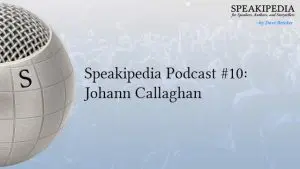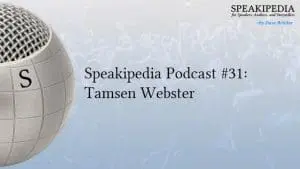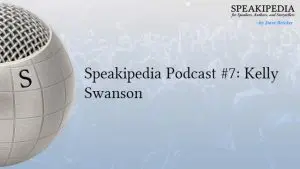Many speakers talk about cortisol and oxytocin and how your brain reacts to stories.
That’s all rather sophisticated sounding except you can’t do anything with it except repeat it if you think it will make YOU sound sophisticated.
Brain chemistry is great for neurologists but speakers will get more out of understanding how stories work in the mind.
How do we process a story?
What kind of experience does a story deliver and why is it so powerful?
Consider first that in geological terms, humankind stepped out of the wilderness an hour ago.
Ten thousand years ago we were still hunting mammoths and avoiding saber-tooth tigers.
As hunter-gatherers, our survival depended on constant scanning of our environment for threats and opportunities.
And this scanning behavior hasn’t changed. Stand on a street corner and look skyward. Soon you’ll be joined by others who want to know what’s up there and whether it’s a cloud of falling bills or a jet engine—an opportunity or a threat.
It’s also what drives people to look at their phones when a speaker is boring. If the speaker offers no opportunities (because they’re probably not threatening), the audience will divert their focus and scan their email to see if any opportunities can be found there.
So scanning is basic human survival behavior.
It’s a bit like flipping through radio stations until you hear something you like.
When you hear a good story—perhaps at the movies or on a keynote stage—something interesting happens.
When I share my story about dodging ships at night in a small boat in rough seas, the audience is there with me. I’ve even seen people look like they were going to be seasick! Stories are rare and powerful!
Intellectually, everyone knows they’re sitting in an auditorium or a movie theater, but your well-told story will hijack a part of your audience’s consciousness.

They’re now scanning for threats and opportunities INSIDE YOUR STORY.
And if you’ve taken them into an unfamiliar conflict—perhaps it’s the prospect of being run over by a cruise ship in a storm—that opportunity is YOU!
You become the guide who has the knowledge and experience to get them through the situation.
And that’s a position of influence.
Who cares how stories work in the brain?
Understand the effect of stories on the mind and you’ll capture your audience’s attention.





